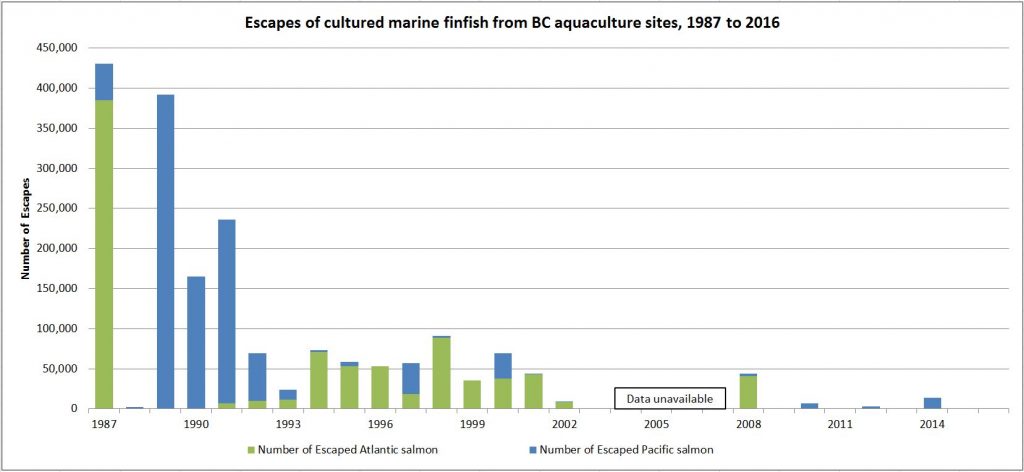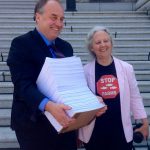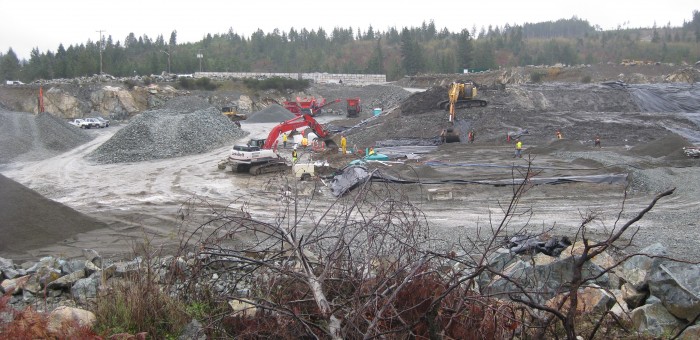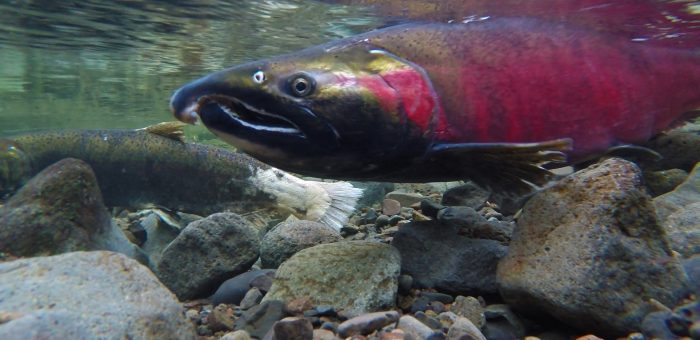Media Release
Pressing the government to commit to demand-side housing reforms
Today in the legislature I rose to question the Minister of Municipal Affairs and Housing about the government’s apparent inaction on the affordability file. When I attended the Union of BC Municipalities 2017 convention last week I heard the Premier give his address to delegates. In it he once more focused only on the supply side of the affordability crisis. But there are also problems on the demand side.
As I have argued for four years, there is a glaring tax loophole that needs to be closed. This Bare Trust loophole incentivizes speculation, discourages transparency and encourages property tax avoidance.
Below I reproduce the video and text of my question period exchange with the Minister. I also reproduce the media release we put out today.
I was not statisfied with the response to my questions. Over the coming weeks we’ll continue to pressure the government to deliver on their commitment to clamp down on rampant real estate speculation in British Columbia.
Video of Exchange
Question
A. Weaver: It seems fitting that I rise and ask a question after this.
Last week, at the UBCM, the Premier took a page out of the B.C. Liberals’ failed strategy to deal with Metro Vancouver’s housing crisis. “We need more supply,” he proclaimed to the delegates. Once more our government has missed the glaring problems on the demand side. Where is their promised speculation tax? Where are the so many other steps that they said they would do and that they would take during the election campaign? And why, after I raised it here in the Legislature almost four years ago, has this government not yet closed a loophole that incentivizes speculation, discourages transparency and encourages property tax avoidance?
My question through you to the Minister of Municipal Affairs and Housing is this: why haven’t you already closed the bare trust loophole — a loophole so big you could drive a bus through it — and ensure that the property tax is applied on the transfer of beneficial ownership and not just the transfer of title?
Answer
Hon. S. Robinson: I want to thank the member down the way for the question.
It’s really important that, when we take a look at the housing crisis — a crisis that rose under the previous government that did nothing, that just pretended like it was not an issue….
Interjections.
Hon. S. Robinson: Let’s be really clear. They were saying: “If you don’t like it, move to Fort St. John.” People have been really struggling.
Interjections.
Mr. Speaker: Members, please, we shall hear the response.
Hon. S. Robinson: It’s really important that….
Interjection.
Hon. S. Robinson: I’ve got nothing against Fort St. John, but I don’t like the government telling me where to live.
It’s really important that when we talk about putting together a comprehensive, affordable strategy, a comprehensive housing strategy, that addresses all of the pieces — the supply side and the demand side — that we take a look at all those levers and all the tools at our disposal, that we make sure that they work together. That’s what comprehensive means, and we need to take our time to get it right.
It’s really important. This is too important to really mess up, so we need to make sure that we’ve got it right. I’m really excited that it is coming in short order.
Supplementary Question
A. Weaver: Please let me remind you that when the Attorney General was in opposition, he was a very fierce critic of the B.C. Liberal housing policy or lack of a policy on affordability. Indeed, a year ago he told Reddit, the readers of Reddit: “We need to eliminate what’s called the bear trust loophole in the property transfer tax where these properties can transfer without property transfer tax paid. It’s costing us literally hundreds of millions of dollars, hundreds of millions that could be used for affordable housing initiatives.”
It’s a straightforward fix. All we have to do is what Ontario has already done years ago. We don’t need to rediscover the wheel, and there is no excuse for a delay.
My question through you to the Minister of Municipal Affairs and Housing is this: what’s the holdup? You’ve had many years in opposition identifying problems, and you’ve had many years to identify solutions. The Attorney General has identified those solutions, said he’d do it. It’s a quick fix. Why haven’t you done it?
Answer
Hon. S. Robinson: I’m grateful that, with the help of member down the way, we’ll have 4½ years to get this work done. And I look forward to that work.
After ten weeks here in government, we have acted on a promise to increase funding for the residential tenancy branch. We are preparing to close unfair loopholes that allow landlords to bypass rent control, something that the previous minister said was rather complicated, which we learned was actually not that complicated.
We’ve announced the creation of 2,000 units of modular housing with wraparound services. We also announced 1,700 unit of affordable housing throughout the province.
That’s in ten weeks. Just think about what we are going to get done in 4½ years.
Media Release
Weaver presses B.C. NDP to commit to demand-side housing reforms
For immediate release
October 3, 2017
VICTORIA, B.C. – Andrew Weaver, leader of the B.C. Green Party, today questioned housing Minister Selina Robinson on the B.C. NDP government’s intentions to take action to cool the housing market.
“Last week at UBCM the Premier indicated that his government’s solution to the problem of housing affordability is to simply add more supply,” Weaver said.
“Once more our government has missed the glaring problems on the demand side. When in opposition, Minister Eby was a fierce critic of the government’s failure to act, and argued that the bare trust loophole costs British Columbia hundreds of millions of dollars that could be used for affordable housing initiatives. The government can take action immediately to close the bare trust loophole that incentivizes speculation, discourages transparency and encourages property tax avoidance.
“The B.C. Greens are committed to proposing bold solutions to the affordable housing crisis that is facing so many communities. I have previously called for the non-resident foreign buyer’s tax to be extended to the entire province, as communities from Victoria to Nelson face a housing crunch. I have also called for a ban on foreign ownership of ALR land over five acres, in order to stem speculation and protect British Columbia’s food security.
“The purpose of housing should be to provide homes for British Columbians – not a commodity that is wide open to international speculation. The B.C. Greens will continue to propose bold, actionable solutions to the housing affordability crisis that is uprooting so many communities across our province. As an opposition caucus, we will continue to push government to take action so that no British Columbian is faced with the terrible reality of being priced out of their own community due to real estate speculation.”
-30-
Media contact
Jillian Oliver, Press Secretary
+1 778-650-0597 | jillian.oliver@leg.bc.ca
Sonia Furstenau welcomes review of professional reliance
Today, Sonia Furstenau, BC Green MLA for Cowichan Valley, joined George Heyman, the Minister of the Environment, in announcing that the BC Government would initiate a review of the Province’s professional reliance model. This announcement fulfills an important promise contained within our Confidence and Supply Agreement with the BC NDP.
Below is our media statement accompanying the announcement.
Media Statement
Furstenau welcomes review of professional reliance
For Immediate Release
October 03, 2017
VICTORIA, B.C. – Sonia Furstenau, MLA for Cowichan Valley, welcomed the government’s review of the professional reliance model announced by Environment Minister George Heyman.
“I’m thrilled to stand with Minister Heyman today as he announces that the government is launching a review of this system that has failed so many communities across British Columbia,” said Furstenau.
“Before professional reliance, government relied on independent in-house experts to conduct environmental assessments to ensure the health and safety of B.C.’s communities. Under professional reliance, the responsibility for this necessary due diligence has been shifted to industry. While qualified professionals are absolutely integral to the environmental assessment process, professional reliance as it stands lends itself to conflict of interest as proponents of projects receive no independent oversight when conducting these vital assessments.
“In Shawnigan we saw firsthand how the uncertainty created by professional reliance erodes trust. The geologists hired to assess the safety of the contaminated soil facility adjacent to our community’s drinking water had a profit-sharing deal and would have benefitted from the project going ahead.
“Resource development has been the backbone of many B.C. communities. It is essential that resource development be done with the support and confidence of the communities in which it occurs. By ensuring that people have trust in government and in industry to protect their health and safety, we can build thriving local economies that will sustain for the long-term.
“I am deeply proud that this review was prompted by its provision in the Confidence and Supply Agreement signed between the B.C. Green and the B.C. NDP caucus. This demonstrates how two parties working together in a minority government can truly put the interests of the people first. I look forward to supporting this review in any way I can.”
-30-
Media contact
Jillian Oliver, Press Secretary
+1 778-650-0597 | jillian.oliver@leg.bc.ca
Ending an era of Big Money in BC politics
Today was an historic day for British Columbia’s democracy. The unparalleled influence of corporate and union donations, that has become a defining feature of what is broken in BC politics, is coming to an end with the introduction of Bill 3 – Election Amendment Act, 2017.
The timing of this bill is particularly historic for the BC Greens as this month also marks one year since we banned corporate and union donations to our own party.
This bill is also historic for another reason: it is the first bill to be introduced that is a foundational piece of our historic Confidence and Supply Agreement. It is a product of good faith and no surprises consultations with the government.
The consultations on this bill began months ago, when we were at the negotiating table with the BC NDP following the results of the May 9 election, and have been ongoing since then as we have worked out the details. Its introduction demonstrates the opportunity we have to change the way politics is done in this province – to put partisan politics aside and put the interests of people first as two parties work together to develop groundbreaking legislation.
Our top priorities were to ensure that this bill:
- bans corporate and union donations;
- has one of the lowest contribution limits in the country;
- reduces overall spending limits so that elections are about policies, not money;
- closes loopholes to avoid a US-style Super PAC system where money flows to unaccountable third parties;
- was tabled early in this session of the legislature.
In the days ahead, our caucus will be reviewing the bill in great detail to ensure that it is:
- comprehensive;
- creates a level playing field;
- truly puts people back at the centre of our democracy.
We look forward to engaging with our colleagues on both sides of the house in good faith and no surprises to ensure that this legislation adequately addresses the issues with the current system.
Below is the media release that we issued today.
Media Release
B.C. Green caucus statement on government’s introduction of campaign finance bill
For immediate release
September 18, 2017
VICTORIA, B.C. – Andrew Weaver, leader of the B.C. Green Party, and Adam Olsen, B.C. Green caucus spokesperson for democratic reform, responded to the introduction of the Elections Amendment Act 2017. An agreement to reform B.C.’s electoral finance laws was a flagship component of the Confidence and Supply Agreement signed between Weaver and Premier Horgan and all members of their caucuses.
“This is a historic day for our province’s democracy,” Weaver said.
“Big money has been the defining feature of what is broken in B.C. politics. Now, one year after B.C. Greens banned corporate and union donations to our own party, we will ban it province-wide once and for all. I am delighted that 2017 will go down in history as the last big money election in B.C.”
“The undue influence of special interests through our province’s lax campaign finance laws has led to cynicism and to people feeling like their voices are not heard,” Olsen continued.
“British Columbians should be able to trust their government to put them – not special interests – first. This legislation is a big step towards restoring that trust.
“In our consultations leading up to the introduction of this legislation, our caucus’ core goals were to ban on corporate and union donations, to ensure B.C. is among the lowest individual contribution limits in the country and that this happened immediately as one of the first bills tabled in the legislature.
“I thank Mr. Eby and his office for their diligent work bringing this bill forward so early in the session. In the days and weeks ahead, we will work with the government to ensure that this legislation is comprehensive and adequately addresses the issues with the current system.”
-30-
Media contact
Jillian Oliver, Press Secretary
+1 778-650-0597 | jillian.oliver@leg.bc.ca
Fish Farms and the Need to Protect Wild Salmon
Last week I sent a letter to B.C.’s Minister of Agriculture seeking clarity as to what the B.C. government is planning to do to promote and facilitate the transition from ocean based, open net fish farms to land based closed containment systems. Today, I followed up with her in Question Period. As you will see from the exchange reproduced below, I was very pleased with the thoughtful answers provided by Minister Popham.
 Fish farms have long been contentious on the B.C. coast due to concerns about sea lice, disease, escaped non-native species, and the impact these contaminants are having on wild stocks – many of which are already significantly depleted. Tensions between some First Nations and operating farms have escalated in the last few weeks following a salmon spill near the San Juan Islands. While action on this file is long overdue, a responsible and effective move to protect our wild salmon stocks now seems especially urgent.
Fish farms have long been contentious on the B.C. coast due to concerns about sea lice, disease, escaped non-native species, and the impact these contaminants are having on wild stocks – many of which are already significantly depleted. Tensions between some First Nations and operating farms have escalated in the last few weeks following a salmon spill near the San Juan Islands. While action on this file is long overdue, a responsible and effective move to protect our wild salmon stocks now seems especially urgent.
The B.C. Green caucus position on fish farms has always been very clear. We need to get fish farms out of the migratory paths of wild salmon. And, at the same time, the provincial government needs to promote the establishment of closed-containment systems on land.
Prior to the last election, the B.C. NDP were also very clear about their commitment to shut down open-net farms and move to closed containment, land-based fish farms. They promised to implement the recommendations of the Cohen Commission as well. This past April, NDP North Island MLA Claire Trevena – now the Minister of Transportation and Infrastructure – told a gathering of indigenous leaders in Alert Bay that if elected, her party would remove fish farms from coastal waters. “We will remove fish farms, we are committed to that and we can actually form government to make this happen and make sure that these territories and the North island are clear of fish farms”
“It can happen here,” she said of a shift to land-based fish farming. “We will make sure it does.”
These are strong words. Unfortunately, jurisdictional divisions threaten to make this far easier said than done. The federal Fisheries and Oceans Canada (DFO) department is responsible for the regulation of most aspects of the aquaculture industry in B.C. The government of Canada issues licences for marine finfish, shellfish and freshwater (or land-based) operations. Licences stipulate the volume and species that may be produced at a site and outline requirements for fish health, sea lice levels, fish containment and waste control.
To complete that structure, the province of B.C. issues tenures where operations take place in either the marine or freshwater environment, licenses marine plant cultivation, and manages business aspects of aquaculture such as work place health and safety.
So, the province only has jurisdiction over one piece of the fish farm regulatory puzzle, but it is still an important one and there is still a lot of room for progress to be made. In collaboration with First Nations and the federal government the province can take it even further. The B.C. Green caucus remains committed to advancing this issue, and making sure the NDP government does the same.
The leading closed-containment Atlantic salmon company in Canada is Kuterra, based in Port McNeill and owned by the Namgis First Nation. Kuteraa received part of its funding from Tides Canada on the basis that it provide open access to its knowledge and since become an industry leader.
 To their credit, the ocean based B.C. fish farming industry has taken measures to improve security and there have been very few escapes over the past five years. The last major escape of Atlantic salmon from a B.C. operation was in 2008 and the most recent significant fish spill was in 2014 when more than 13,000 farmed rainbow trout escaped from an operation at Brettell Point, near Powell River. This summer’s incident in U.S. waters, however, highlights the continued risk of farming Atlantic salmon in open net pens. Escaped salmon increase the risk of spreading disease to wild stocks, and heighten competition with wild Pacific salmon, which are endangered in many B.C. watersheds. It is time for governments to help the fish farming industry transition from open-net farms to closed containment land based facilities. It is time to prioritize the protection of wild salmon.
To their credit, the ocean based B.C. fish farming industry has taken measures to improve security and there have been very few escapes over the past five years. The last major escape of Atlantic salmon from a B.C. operation was in 2008 and the most recent significant fish spill was in 2014 when more than 13,000 farmed rainbow trout escaped from an operation at Brettell Point, near Powell River. This summer’s incident in U.S. waters, however, highlights the continued risk of farming Atlantic salmon in open net pens. Escaped salmon increase the risk of spreading disease to wild stocks, and heighten competition with wild Pacific salmon, which are endangered in many B.C. watersheds. It is time for governments to help the fish farming industry transition from open-net farms to closed containment land based facilities. It is time to prioritize the protection of wild salmon.
 In May, 2015, I was afforded the honour of introducing a petition by 108,848 people who are asking the government to please not issue licences of occupation to salmon farms trying to expand in British Columbia. I also introduced a second petition signed by more than 100 business organizations across the province who supported the individuals who signed the larger petition. The business organizations argued that they are convinced by the published scientific evidence that open net salmon farms are a threat to B.C. wild pacific salmon.
In May, 2015, I was afforded the honour of introducing a petition by 108,848 people who are asking the government to please not issue licences of occupation to salmon farms trying to expand in British Columbia. I also introduced a second petition signed by more than 100 business organizations across the province who supported the individuals who signed the larger petition. The business organizations argued that they are convinced by the published scientific evidence that open net salmon farms are a threat to B.C. wild pacific salmon.
Below I reproduce the exchange I had with Minister Popham as well as the accompanying media release
Video of Question Period Exchange
Question
A. Weaver: The 2017 B.C. election platform states this.
“We will ensure that the salmon farming industry does not endanger wild salmon by implementing the recommendations of the Cohen Commission, keeping farmed sites out of the important salmon migration routes and supporting research and transparent monitoring to minimize the risk of disease transfer from captive to wild fish.“
In addition, the Minister of Transportation and Infrastructure promised First Nation leaders, in Alert Bay on April 23 of 2017:
“We will remove fish farms, we are committed to that, and we can actually form government to make this happen and make sure that these territories and the north Island are clear of fish farms.“
She did so, with respect, as a means or way of convincing First Nation leaders not to vote for the B.C. Green Party.
My question to the Minister of Agriculture is this: what is the government’s plan now to implement the recommendations of the Cohen commission and assist in the transition from ocean-based fish farms to land-based closed-containment systems?
Mr. Speaker: If it was always that friendly.
Answer
Hon. L. Popham: Thank you to the member for Oak Bay–Gordon Head for the question. I appreciate it, and I want to assure the member and the people of British Columbia that our government is deeply committed to protecting B.C.’s wild salmon. It’s essential to our economy, it’s essential to our province, and it’s essential to our B.C. First Nations.
The Cohen commission recommendations are something that we did commit to in our platform, and we are absolutely committed to fulfilling those recommendations. There are federal recommendations and there is B.C.’s portion of those recommendations, and we are committing to do that.
Also, I’m sure the member probably knows that, but I did want to point out that in 2010 there was a Hinkson decision which moved the responsibility for fish health and licensing of fish farms to the federal government. The provincial government has the responsibility for tenures. It’s important to know that at this time, as we’re figuring out where we go next, there are no tenures being approved and no renewal of tenures being approved.
Supplementary Question
A. Weaver: First off, I do wish to thank the official opposition for their support in the question. I’m sure they thought I was going to offer a softball, but this is a very serious question that we would like to actually get details on.
I’d like to acknowledge that this is a very complex multi-jurisdictional issue, but let me be very clear. The Minister of Transportation and Infrastructure was forthright and clear that her government was going to remove fish farms from the migratory tracks of sockeye salmon — period. She said that to First Nation leaders in the north Island and convinced them not to vote for the B.C. Green Party because of that.
Now, my question, again to the Minister of Agriculture, is this. Does she intend, in her mandate, to end the use of open-net fish farms along the migratory passage of sockeye system, as promised to British Columbians by the now Minister of Transportation and Infrastructure?
Answer
Hon. L. Popham: Thank you, Mr. Speaker.
Interjections.
Mr. Speaker: Members, we shall…. The friendliness is wonderful, but we shall hear the minister’s response.
Hon. L. Popham: Thank you, Mr. Speaker, and thank you again for your question. I’m not sure if the member knows, but I am waiting for the recommendations coming from a report from the Minister of Agriculture’s advisory council on finfish aquaculture, which has been looking at the issue. I expect that report to be coming forward with recommendations at the end of this year. While I wait for those recommendations, I have already been on the ground, meeting with stakeholders. I’ve met with First Nations, the industry.
I’ve also sat down with the Minister of Fisheries, Minister LeBlanc from the federal government, and invited him to come sit at the table with us, because I think it’s going to take the provincial government, the federal government, First Nations and industry to sit together as we move forward and figure out the recommendations and how to implement them.
Media Release
Weaver seeks action from government to end ocean based fish farming
For immediate release
September 13, 2017
VICTORIA, B.C. – Andrew Weaver, leader of the B.C. Green caucus, is seeking leadership from the government to protect B.C.’s wild salmon stocks. Weaver questioned Minister of Agriculture during question period, after having sent a letter to the Minister last week.
“Fish farms have long been contentious on the B.C. coast due to concerns about sea lice, disease, escaped non-native species, and the impact these contaminants are having on wild stocks – many of which are already significantly depleted,” Weaver said.
“In April, NDP North Island MLA Claire Travena, now Minister of Transportation, promised that her party would remove fish farms from coastal waters.
“Last week I sent a letter to Minister of Agriculture Lana Popham seeking clarity on when and how the government intends to keep its commitment on this promise. Today in question period, I asked Minister Popham whether her government still intends to end the use of open net fish farms along the migratory paths of wild salmon during this government’s mandate.”
In her response, Minister Popham referenced plans to work with federal and First Nations governments and an upcoming report.
“While this is no doubt a complex multi-jurisdictional issue, the provincial government must play a leading role. The province needs to actively advocate for British Columbian values. They must push the federal government to adopt policies that will protect the wild salmon that are foundational to our coastal communities and ecosystems. I will continue to work with governments and stakeholders to keep this issue a priority.”
-30-
Media contact
Jillian Oliver, Press Secretary
+1 778-650-0597 | jillian.oliver@leg.bc.ca
B.C. Liberals reintroduce Elections Amendment Act bill
Today in the Legislature Andrew Wilkinson, the MLA for Vancouver Quilchena, reintroduced the Elections Amendment Act that the BC Liberals had initially introduced this past summer. The bill did not pass First Reading in the summer as the then government had yet to test confidence. Today the bill passed First Reading and so will be printed shortly.
The BC NDP promised a bill on electoral finance reform that would ban big money this session. It’s exciting that all parties are in agreement. It looks like the banning of big money in BC Politics is imminent.
Below is the media statement that I released to day on the new Private Member’s bill.
Media Statement
Weaver statement on B.C. Liberals’ reintroduction of the Elections Amendment Act
For immediate release
September 13, 2017
VICTORIA, B.C. – Andrew Weaver, leader of the B.C. Green caucus, responded today to the reintroduction of the Elections Amendment Act by B.C. Liberal MLA Andrew Wilkinson. Wilkinson first introduced the bill, aimed at B.C.’s campaign finance laws, in June prior to the B.C. Liberals having tested confidence following the loss of their majority in the May election.
“After B.C. was internationally derided as the wild west of politics due to our lack of campaign finance laws, I am delighted that we finally have all-party agreement on the need for reform,” Weaver said.
“I am also encouraged by our good-faith consultations with the government and by the Attorney General’s statement today that the legislation resulting from our consultations will be tabled next week.
“Now that there is a government that has the confidence of the house, the B.C. Green caucus looks forward to genuine, productive debate in good faith on this crucial issue so that we can finally get big money out of B.C. politics.”
-30-
Media contact
Jillian Oliver, Press Secretary
+1 778-650-0597 | jillian.oliver@leg.bc.ca







